
Emily Conover
Physics, Senior Writer, Science News
Physics writer Emily Conover loves physics for its ability to reveal the secret rules about how stuff works, from tiny atoms to the vast cosmos. Before becoming a science journalist, she studied physics at the University of Chicago. There, she investigated the weird ways of tiny particles called neutrinos. She has previously written for the Milwaukee Journal Sentinel, Science Magazine and the American Physical Society. She is a two-time winner of the D.C. Science Writers’ Association Newsbrief award.

All Stories by Emily Conover
-
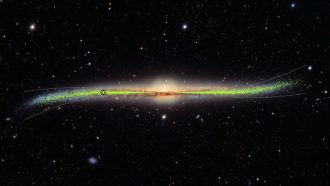 Space
SpaceThe Milky Way is shaped like a curvy potato chip
Our galaxy’s got curves. You can see them in a chart of thousands of stars called Cepheids.
-
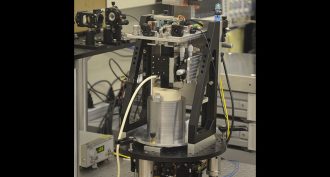 Physics
PhysicsThis device turns the kilogram’s new definition into a real mass
A new suitcase-sized device will be able to measure small masses — around 10 grams — with surprising accuracy.
-
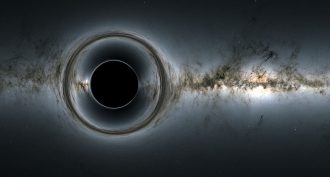 Physics
PhysicsBlack holes might have a temperature
Physicists made a mock black hole in their lab. They used it to show the real, celestial black holes have a slight temperature.
-
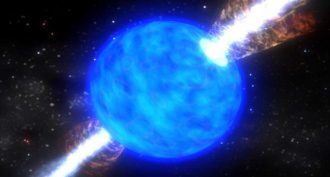 Physics
PhysicsDying stars can make gold as they collapse into black holes
There are spinning stars in space. Some of them collapse into black holes. Along the way, they may generate a lot of heavy elements — including gold.
-
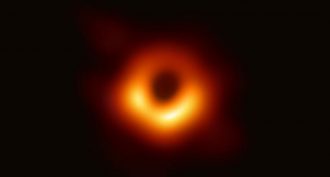 Physics
PhysicsHere’s the first picture of a black hole
The Event Horizon Telescope imaged the supermassive beast lying some 55 million light-years away in a galaxy called M87.
-
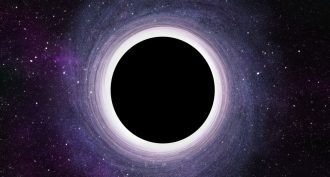 Physics
PhysicsA short history of black holes
From dreaming up black holes to snapping the first picture of one, the history of black holes has had many twists and turns.
-
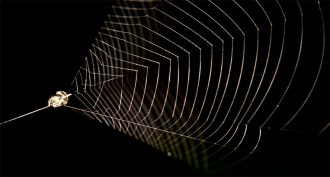 Animals
AnimalsThis spider slingshots itself at extreme speeds to catch prey
By winding up its web like a slingshot, this spider achieves an acceleration rate far faster than a cheetah’s.
-
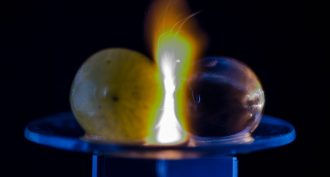 Physics
PhysicsScientists now know why microwaved grapes make plasma fireballs
Grapes trap microwave energy that bounces back and forth within the fruit. Until boom — a plasma!
-
 Physics
PhysicsThunderstorms hold stunningly high voltage
By studying particles called muons, scientists found that the electric potential inside a thunderstorm may be 10 times higher than previously thought.
-
 Physics
PhysicsHigh-speed video reveals the best way to shoot a rubber band
What’s the best way to shoot a rubber band? High-speed video reveals how to avoid hitting your thumb.
-
 Animals
AnimalsHow some insects fling their pee
Insects called sharpshooters use a tiny barb on their rear ends to hurl their pee at 20 times the acceleration of Earth’s gravity.
-
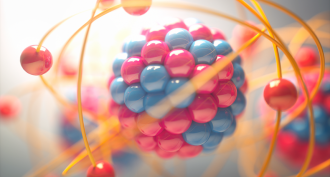 Physics
PhysicsMuch of a proton’s mass comes from the energy of the particles inside it
Thanks, Einstein! Your famous E=mc2 formula now explains much of a proton’s ‘mass.’ Its building-block quarks make up just a small part of its left, calculations now show.